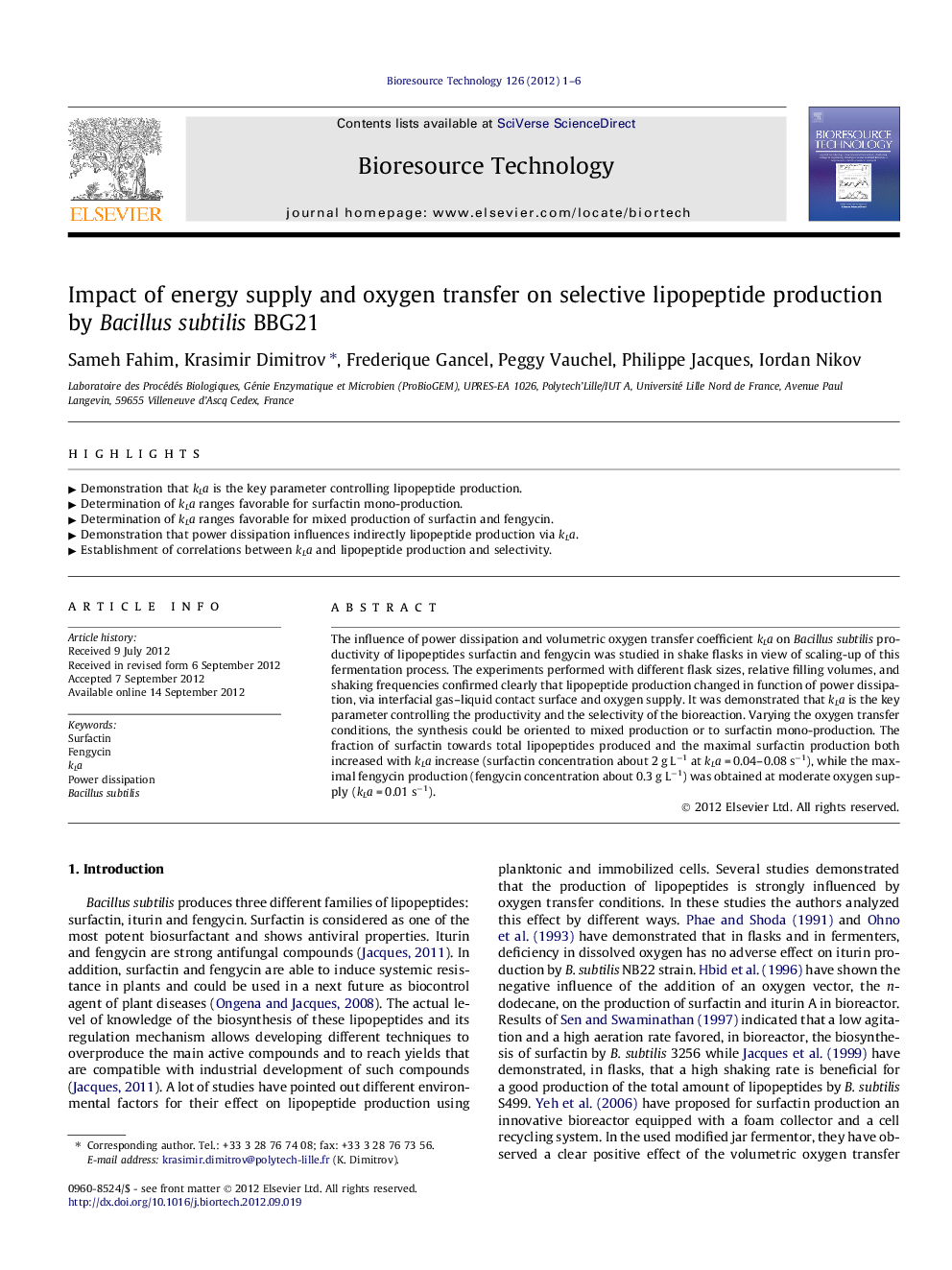| Article ID | Journal | Published Year | Pages | File Type |
|---|---|---|---|---|
| 681276 | Bioresource Technology | 2012 | 6 Pages |
The influence of power dissipation and volumetric oxygen transfer coefficient kLa on Bacillus subtilis productivity of lipopeptides surfactin and fengycin was studied in shake flasks in view of scaling-up of this fermentation process. The experiments performed with different flask sizes, relative filling volumes, and shaking frequencies confirmed clearly that lipopeptide production changed in function of power dissipation, via interfacial gas–liquid contact surface and oxygen supply. It was demonstrated that kLa is the key parameter controlling the productivity and the selectivity of the bioreaction. Varying the oxygen transfer conditions, the synthesis could be oriented to mixed production or to surfactin mono-production. The fraction of surfactin towards total lipopeptides produced and the maximal surfactin production both increased with kLa increase (surfactin concentration about 2 g L−1 at kLa = 0.04–0.08 s−1), while the maximal fengycin production (fengycin concentration about 0.3 g L−1) was obtained at moderate oxygen supply (kLa = 0.01 s−1).
► Demonstration that kLa is the key parameter controlling lipopeptide production. ► Determination of kLa ranges favorable for surfactin mono-production. ► Determination of kLa ranges favorable for mixed production of surfactin and fengycin. ► Demonstration that power dissipation influences indirectly lipopeptide production via kLa. ► Establishment of correlations between kLa and lipopeptide production and selectivity.
